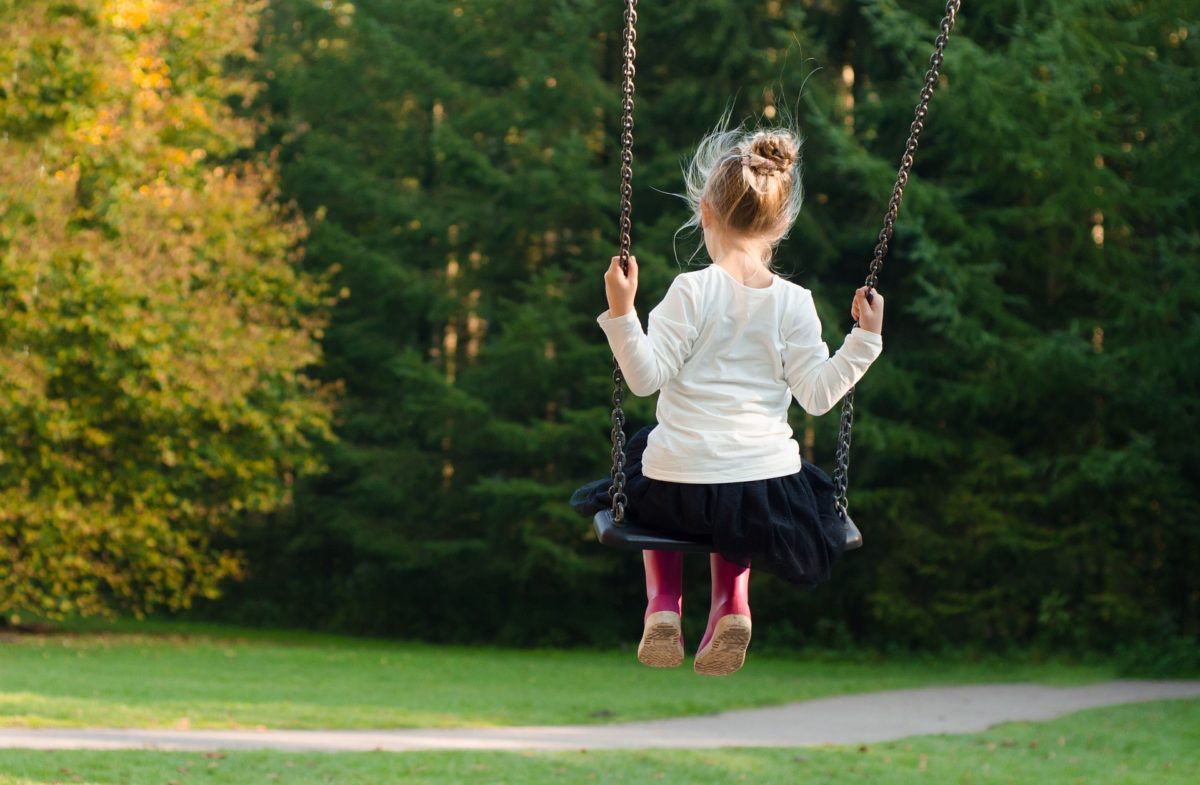Photo by: Photo by Santi Vedrí on Unsplash
allergies | asthma | brain development | child health | equity | heat | low birth weight | mental health | preterm birth | wildfires
This guide explains what scientists have found about how climate change impacts cognition and how you can keep your child healthy in a changing climate.
Climate change produces hotter temperatures and worse air pollution—and that matters to a child’s brain. Some studies have shown that heat and air pollution can influence everything from how a brain develops to how well a student does on a test.
What does air pollution have to do with your child’s developing brain?
Burning fossil fuels (for example, from power plants, cars, and trucks) produces carbon pollution that drives climate change and creates conventional air pollution, including particulate matter or PM, that can harm developing brains.
Many research studies have suggested that the more particulate matter a child or teen breathes, the more their brain may be harmed.
- A study in Massachusetts found that children living within 50 meters (164 feet) of a major roadway—where particle pollution is higher due to car traffic—had lower IQs and poorer ability to do tasks that require hand-eye coordination than children living more than 200 meters (656 feet, or about one city block) away from a major roadway.
- Similarly, 9-11 year-olds and 18-20 year-olds in Los Angeles exposed to more particulate matter had lower IQ scores than those exposed to lower levels of particulate matter.
Is my child at risk? How do I know if they’re breathing air pollution?
Air quality monitors can track how much particle pollution is in the air near where you live. Here are some websites that you can use to check the air quality near your home or workplace:
Most tools use a color code to show if the air is healthy or unhealthy to breathe.
How can I protect my child from air pollution?
There are steps you can take to reduce your child’s exposure to air pollution. For example:
- Check the air pollution levels near your home, using online tools like airnow.gov, to see when the air may be unsafe
- When air pollution levels are high, keep your child indoors and avoid vigorous outdoor activity
- Prevent your child from spending long periods of time outside near high-traffic areas
- Avoid burning anything in and around your home—including everything from cigarettes or e-cigs to incense and wood (unless in a properly ventilated fireplace or stove)
- Consider using household cleaning products that carry EPA’s Safer Choice label to avoid airborne chemical irritants
- Consider purchasing an air filter for your house or child’s bedroom
- Work with other parents and teachers to make sure your children’s school is doing what it can to keep the air clean and cool, like stopping the idling of dirty diesel buses, buying clean buses, and participating in the Tools for Schools program
What does heat have to do with my child’s ability to think?
Climate change has already made temperatures hotter and produced more frequent and intense heatwaves in most of the United States.
Hotter temperatures may make kids do less well in school.
- A 2023 EPA report found that climate-driven heat is expected to impact school performance, leading to a 4% to 7% reduction in academic achievement each year and potentially impacting future income.
- A study that looked at the test scores of millions of American high school students found that students scored lower when they had just experienced a hot school year than when they had just experienced a cool school year. Low-income and minority students were impacted by heat more than others, and air conditioning in schools almost completely eliminated the impact of heat.
- A study of college students living in dorms during a summer heatwave found that students in dorms without air conditioning had lower test scores and slower reaction times than students in air-conditioned dorms.
How hot is too hot?
We need to learn much more about how hot is too hot for our children to think clearly and learn.
That said, the CDC recommends protecting you and your child from the heat by:
- Staying cool inside an air-conditioned place
- Planning to do outdoor activities in the morning and early evening during the summer months
- Drinking plenty of water
- Checking your local news for extreme heat alerts
How can I do my part to take action against climate change?
Climate change can feel overwhelming, but the good news is that we have solutions for climate change that can improve the health of your child and children all over the world. The same actions we take to curb climate change also have immediate health benefits.
Here are a few simple steps you can take:
- Educate yourself. Learn about environmental justice and how systemic racism and other forms of oppression lead to some children bearing a higher burden from climate change. Share resources with your community.
- Plant trees and other vegetation where you live, and encourage your community to do the same. Trees provide shade to help you stay cool on hot days. Adding trees and other vegetation to your neighborhood can also help improve the air quality where you live, especially in urban areas, and can improve mental health.
- Choose walking, biking or public transit whenever possible, and consider carpooling. If you are buying a car, choose an electric car or find one with better fuel economy. The more gas a car burns per mile, the more harmful air pollution it generates. Getting exercise may also help improve a child’s mental health.
- Reduce, reuse, and recycle. A timeless piece of advice. The more we buy new, the greater our carbon footprint.
- Invest in energy efficiency and renewables. Ask your local leaders to invest in renewable energy in public buildings, and support building regulations that require solar panels and energy-saving policies for new buildings. Conserving energy saves money and reduces our carbon footprint.
- Start a conversation. Talk to your family and friends about climate change to make sure they know it’s a health issue, especially for our children, and that we need to work with everyone to take action to fight this climate crisis. Work with your place of worship and in your children’s school to see what you can do to spread the word and keep our kids healthy, and get involved in climate change planning at the state and local level.
- Get involved. Many towns and cities want to decarbonize—in fact they’re leading on this issue—and parents can play a role in shaping those efforts. Ask local leaders how your neighborhood can become safer and healthier by making it greener, more walkable and bike-friendly. You can ask decision makers to add green space by planting trees, increase access to public transit and invest in electric vehicle infrastructure. These actions will benefit everyone’s health and especially the health of our children.
Terms of Use
The contents of this website are for educational purposes and are not intended to offer personal medical advice. You should seek the advice of your physician or other qualified health provider with any questions you may have regarding a medical condition. Never disregard professional medical advice or delay in seeking it because of something you have read on this website. Harvard Chan C-CHANGE does not recommend or endorse any products.

Children's health adversely impacted by climate change
A primer on the many different ways that climate is a health and equity issue—especially for kids.

Heat Waves Can Dull Even Young Minds, Study Says
As America sweats through another summer, new research suggests that heat waves can slow the brains of even healthy young adults.

Heat Waves make it hard for people to think, Scientists find
Harvard scientists reported that students in dorms who have air conditioning during heat waves do better on cognitive tests than students who live with the hot temperatures.

Heat might really be getting to your brain
We might be able to blame the heat for our bad decisions

Harvard study finds that during heat waves, people can’t think straight
Harvard researchers say that they studied students in dorms with and without air conditioning and during a heat wave. They found that the students suffering through the heat performed worse on a series of cognitive tests.
